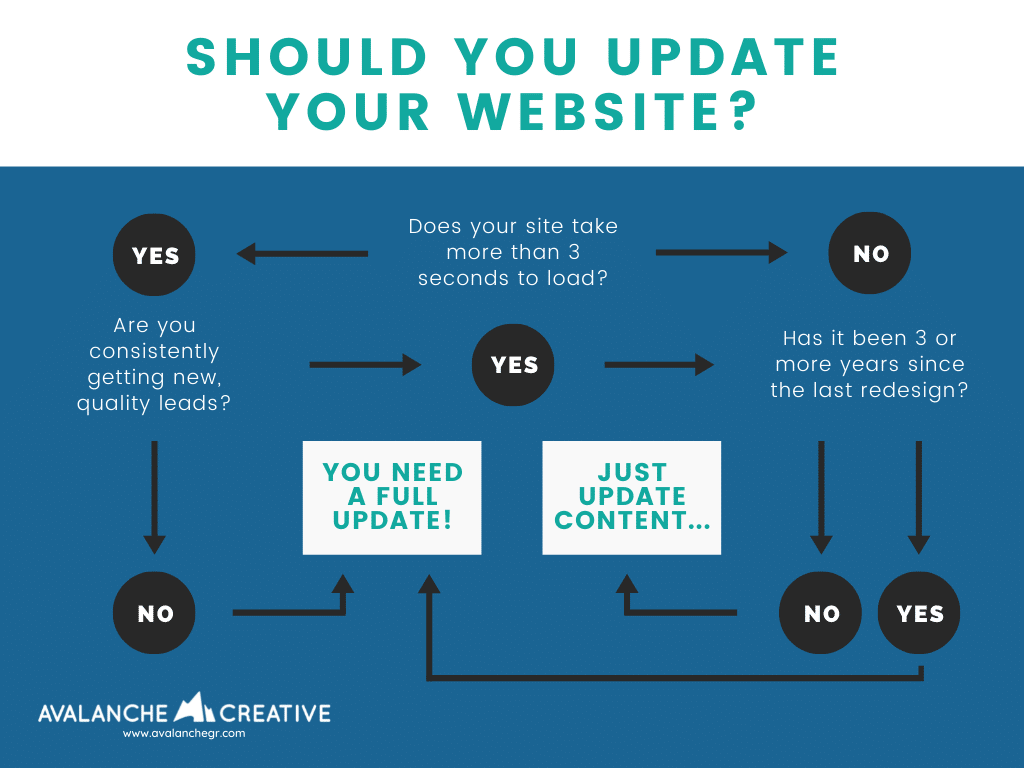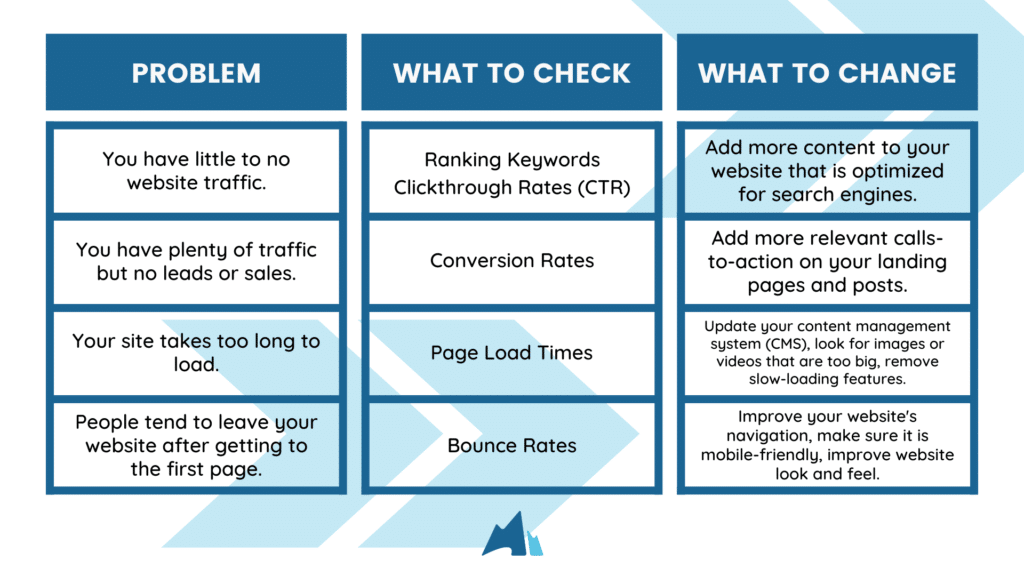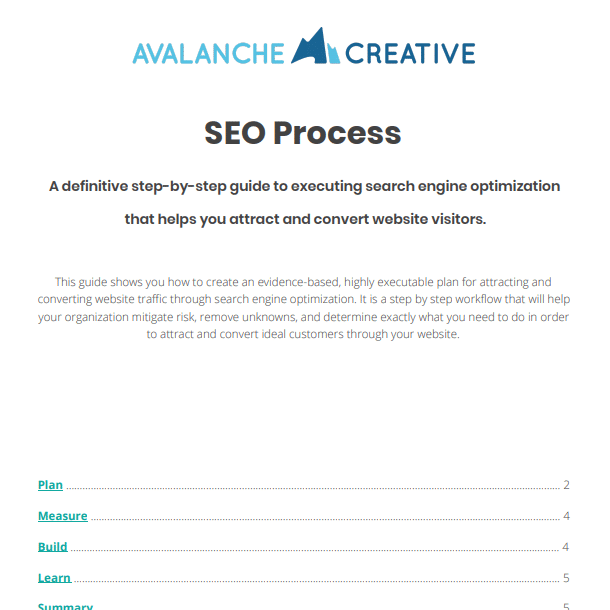It’s 2021. Do I Need a New Website?
Are websites still necessary in this day and age? In this post, we take a look at how important it is to maintain a well-designed and relevant website.

Category: Search Engine Optimization, Web Design | Tags: Digital Marketing, Web Design, strategy
Answer this: Are you dedicated to providing your customers with the best experience possible in working with you? Now, what is the first interaction that they typically have with your business?
Unless your customers prefer to pick up a phone to call and chat with you right away, they’re likely spending some time doing research on your website. Does yours provide a positive experience? Does it provide the information needed to help them make an informed decision?
First of All, Do You Even Need a Website in 2021?
We’ve reached a point in technological development where people have started wondering if websites are even still necessary for businesses. With tools like eCommerce apps and Google My Business to direct users to call businesses or browse menus and products, are websites dying?
The short answer is no, websites aren’t dying. In fact, the number of websites on the internet has almost doubled since the year 2014! Today, there are over 1.8 billion websites and counting.
So Why do People Still Like to Use Websites?
There haven’t been many studies on why we’re still holding on to using websites to glean information or make purchases. Most would say it’s because we’re creatures of habit. Not only that, but website management platforms have gotten better, making websites more user-friendly on phones and tablets. Websites are familiar to us, and we just really like using them.
Has Social Media Replaced the Need for Websites?
Yes and no. Social media is still very widely used when potential customers are doing research on a product or service from your company. Many times, if a customer is looking for something specific, they will be able to find it on one of your social media accounts.
However, what if your customer doesn’t yet realize that they need your product or service? What if they’re still doing research on how to solve their problem? This is when creating a website (and a blog) can help you capture that traffic, build a trusting relationship, and possibly convert users from visitors to leads and customers.
Don’t think of your social media profiles as a way to replace your website. Alternatively, don’t think that only having a website is enough of an online presence without the supplementation of social media accounts—particularly the accounts that your target customers like to spend time on.

How Do I Know if I Need a New or Updated Website?
A general rule of thumb is that you should be updating your website at least once every three years. This is more than just changing some content; you should be focused on improving the user experience of your website by looking at data from your Google Analytics. Here are some common website issues, suggested data points to check, and recommendations for how you can improve your website.

What Kinds of Updates Can I Make to My Website?
Based on the factors listed above, the possibilities for updates to your site are endless. Let’s break these types of updates into categories for more clarity.
Visual Updates
Things like your website’s design, layout, and images/videos should be changed up on a regular basis. Not only does this help keep regular visitors engaged with new visual content, but it also helps improve impressions of your brand. Think about it like a storefront; if you walk into a retail store that has outdated decor, you might not be as likely to buy as you would if the store had a fresh, more modern look.
User Experience Updates
Certain visual updates, such as your website layout, fall under user experience updates if they improve your visitor experience. For example, changing the color of the text in a menu bar to make it easier to see is a visual change that also improves your user experience.
User experience updates that are less visual include making your website load faster, adding new features that make completing tasks on your website easier, and adding more detailed meta data to pages so search engines like Google can better understand the purpose of the landing page or post.
Content Updates
Like we said earlier, content on your website should be updated more frequently. Always add more helpful and updated content to your website. This tells Google that the information is up to date and, ideally, the most relevant to the user’s query.
Remember to treat your website as if it’s your top salesperson that works for you 24/7. It won’t ask for a commission check, but it does require some of your attention and care every once in a while.
Share this article:
The Avalanche Email: Fun. Simple. Educational. No Selling.
Learn Result-focused SEO & Content
Join over 2,272+ others who get one email every Wednesday with simple instructions on how to get more website traffic and leads through SEO and content marketing. (Learn more about the email)
Share this article:





